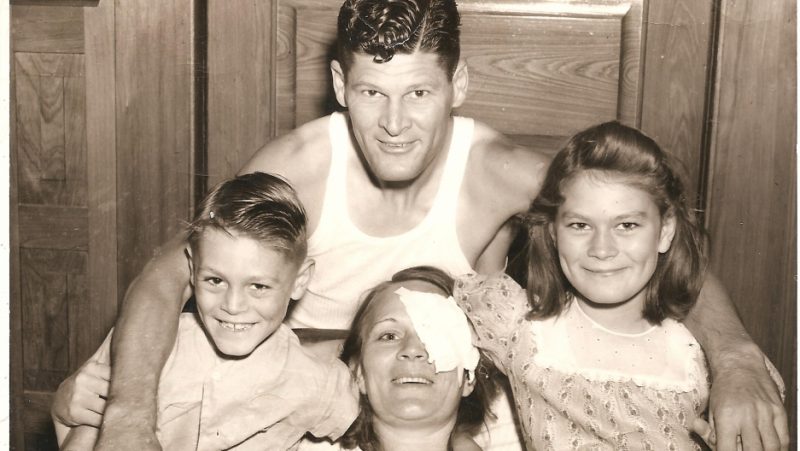Ray Downs was sailing with his family on the freighter Heredia on May 19th, 1942. He was eight years old at the time, and they were returning from Central and South America. Working as a mechanic his father had been earning and saving as much money as he could for a year. They were on their way home and expected to arrive in New Orleans in the morning.
“My sister and I asked our parents if we could sleep out on the deck, because it was quite humid and we had done that on other nights, and it was very nice. The breeze was out there,” Downs, now 82, said. “Since it was our last night on the ship, they said, “No, we’re going to sleep in our cabins.’”
“Just as we were going down to our cabins, the captain came up, and he put his hand in my hair and shuffled my hair and said, ‘Well, sonny boy, by about 6:30 in the morning, you’ll be in New Orleans,’” Downs recalled. “When the first explosion hit — dreaming, I thought the ship was banging against the pier in New Orleans,” he said.
In the middle of the night, the Heredia was hit by two torpedoes from the German U-Boat U-506. “When the second torpedo hit, it woke me and the next thing my dad was standing there, and he said, ‘Put on your life preserver.’ You had a little peg that it hung [on] right by your bunk,” Downs explained. “I looked down on the deck, and he was already standing in water about a calf high.”
The family held hands and made their way up to the deck. “Just as we were stepping onto the main deck, the ship rolled, and it washed us all apart,” Downs says. “It washed my dad back down, it washed my sister around the other side of the ship, and it pinned my mother up against a stairwell.”
“I went under water, and I didn’t think I was ever going to come up,” he says. “When I finally came up, I realized that it was so light, and that’s how I realized that the sub had surfaced and put floodlights on the sinking ship.”
According to Michael Tougias, co-author with Alison O’Leary of the book So Close to Home, there were many more attacks in the Gulf of Mexico after this one. He said that approximately 50 ships were sunk in the Gulf in 1942. The commander that sank the Heredia sank nine more during that patrol.
“The Germans actually had a name for this time,” Tougias explains. “They called it the ‘second happy time.’ The first happy time was all the sinkings they did of British ships when the war first started, and here they are doing it again in American waters.”
Downs clung to a balsa wood raft covered in canvas along with his father, another passenger, and the ship’s captain. They hung on through the scorching sun, facing sharks, hypothermia, hunger, and thirst. Eighteen hours later they were rescued by a shrimp boat after a rescue plane spotted them.
The same ship found Downs’ mother, Ina. She was floating in the water alone and covered in oil from the ship. She claimed it was her prayers that saved her life. The ship’s second mate saved Downs’ sister, Lucille. She kept her spirits up while floating in the Gulf by singing her mother’s favorite hymn, “Nearer My God to Thee”.
Of the 62 people on the ship, 35 died. The Downs family lost everything they owned, but they made it home alive.
